Ultimate Guide to Choosing the Best Low Noise Generator for Your Industrial Needs
Table of Contents
- Understanding Decibel Levels: The Science Behind Low Noise Generators
- Key Features to Consider When Selecting an Industrial Low Noise Generator
- Comparative Analysis: Most Efficient Models for Noise Reduction in Industry
- Industry Standards and Regulations for Low Noise Generators Explained
- Cost vs. Performance: Finding the Right Balance for Your Industrial Applications
- Maintenance Tips to Ensure Longevity and Optimal Performance of Generators
- FAQS
- Conclusion
- Related Posts
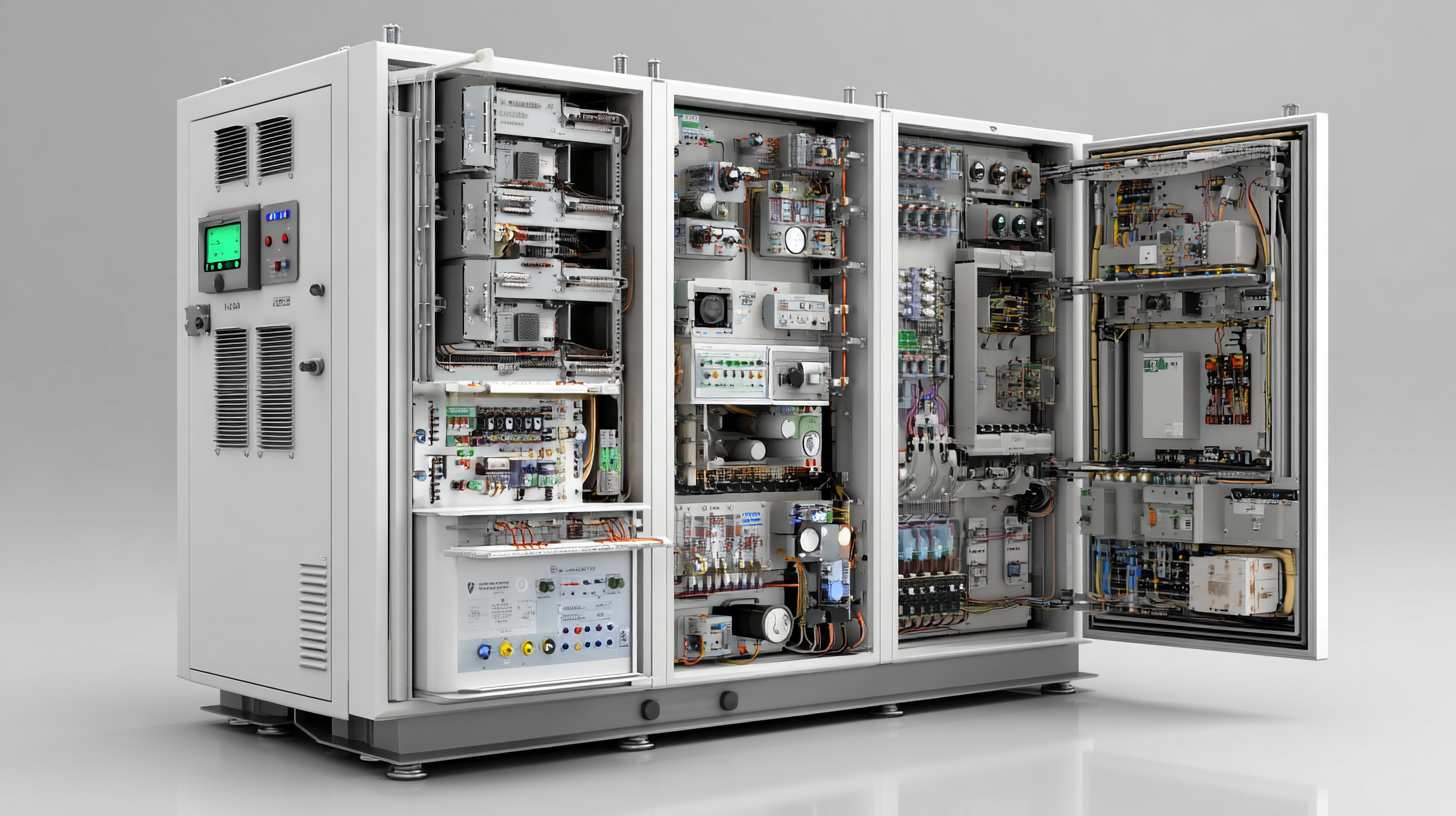 Hey there! So, in today’s fast-changing industrial world, the need for reliable power solutions is more important than ever—especially in places where noise levels really matter, like construction sites, hospitals, or telecom centers. I came across a report from Research and Markets that says the global market for low noise generators is actually expected to grow by over 5% each year. It makes sense—companies want quieter, more efficient operations without causing a ruckus.
Hey there! So, in today’s fast-changing industrial world, the need for reliable power solutions is more important than ever—especially in places where noise levels really matter, like construction sites, hospitals, or telecom centers. I came across a report from Research and Markets that says the global market for low noise generators is actually expected to grow by over 5% each year. It makes sense—companies want quieter, more efficient operations without causing a ruckus.
Longen Power, a big name in the generator game, specializes in making low noise sets that not only perform well but also keep noise to a minimum. They offer a wide range, from 5KVA all the way up to 3300KVA, and they pack these with trusted engines like Perkins, Cummins, and MTU—plus top-notch alternators. Basically, they’re really dedicated to helping industries meet their diverse needs.
Picking the right low noise generator isn’t just about keeping things running smoothly; it’s also about sticking to environmental rules. So, if you’re in the market, this guide could be a real lifesaver for industry folks trying to navigate all that.
Understanding Decibel Levels: The Science Behind Low Noise Generators
When you're picking out a low-noise generator for industrial use, it's really important to understand what the decibel levels actually mean. Decibels, or dB, measure how loud a sound is, but it’s not a linear scale — a 10 dB jump actually means the sound is ten times more powerful. The World Health Organization warns that noise above 85 dB can cause hearing damage if you're exposed to it consistently — which is a big deal in industrial settings where workers are around noisy generators all day long. Usually, low-noise generators run somewhere around 60 to 70 dB — that’s roughly the same noise level as a normal conversation — so they help keep the workspace safer and more comfortable.
But decibel ratings are about more than just avoiding discomfort. They also play a role in how productive your team is and whether you're staying within legal limits. For example, the EPA recommends that noise levels in work environments stay below 55 dB during the day and 45 dB at night in residential areas. A study I came across in the Journal of Environmental Management pointed out that too much noise can actually make workers less efficient and more stressed out. That’s pretty clear evidence that choosing generators that meet these sound standards isn’t just about safety — it’s good for business, too. Investing in quieter equipment not only keeps your team safer but also shows you care about their well-being and your company’s reputation for safety and health.
Ultimate Guide to Choosing the Best Low Noise Generator for Your Industrial Needs - Understanding Decibel Levels: The Science Behind Low Noise Generators
| Generator Model | Noise Level (dB) | Power Output (kW) | Fuel Type | Run Time (hours) |
|---|---|---|---|---|
| Model A | 52 | 3.5 | Diesel | 10 |
| Model B | 58 | 4.0 | Gasoline | 8 |
| Model C | 50 | 5.0 | Propane | 12 |
| Model D | 55 | 6.5 | Diesel | 15 |
| Model E | 53 | 7.0 | Gasoline | 9 |
Key Features to Consider When Selecting an Industrial Low Noise Generator
When you're on the hunt for an industrial low-noise generator, there are quite a few key features you really want to keep in mind to make sure it works well and stays within noise regulations. One of the main things people look at is how loud the generator is—usually measured in decibels, or dB. For industrial models, noise levels typically fall somewhere between 60 and 75 dB at about 7 meters away, depending on the design and what it's used for. Funny enough, industry reports suggest that the demand for quieter generators is actually climbing by around 8% each year. As industries try to cut down on environmental impact and boost worker comfort, the need for low noise options keeps growing.
Another important factor is the engine type. Diesel generators tend to be pretty popular because they’re reliable and efficient. Companies like JIANGSU LONGEN POWER TECHNOLOGY CO., LTD. focus on making diesel generator sets that range from 5 KVA to a hefty 3300 KVA. They come equipped with top-quality engines from big-name brands like Perkins, Cummins, and Mitsubishi. And don’t forget about the alternators — choosing reputable brands like Stamford or Leroy Somer can really make a difference in how well your generator performs and how long it lasts. A good quality alternator helps keep things running smoothly, quietly, and efficiently.
Last but not least, how much fuel it consumes and how long it can operate are super important, especially for industrial setups. Today’s models are designed to use less fuel while still delivering strong output, which helps cut down on your operational costs. Industry insights show that using low noise generators with better fuel efficiency can save you up to 20% in fuel costs every year. All in all, investing in a good, efficient low-noise generator can really pay off in the long run.
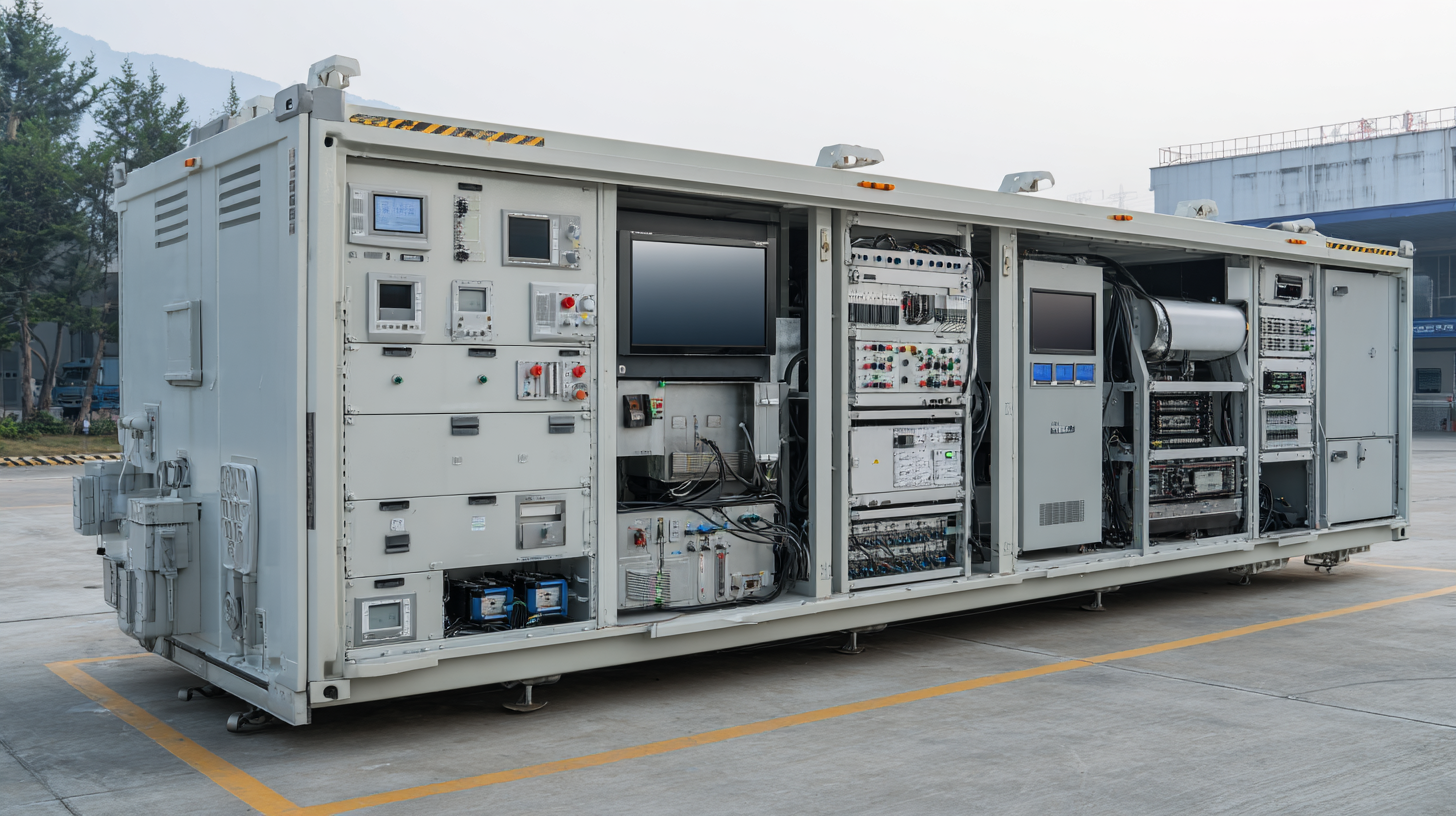
Comparative Analysis: Most Efficient Models for Noise Reduction in Industry
When it comes to running industrial operations, picking a low-noise generator is pretty much essential for keeping the workspace both productive and compliant. I read a recent report from the Noise Control Foundation, and it really hit home how exposure to loud noise isn’t just annoying — it can actually cause health issues like hearing loss and stress. That’s why it’s worth taking the time to compare the best models out there, especially since technology has come a long way. Some of these new generators can cut noise levels by up to half, which is pretty impressive.
One standout among the top choices is the Honda EU2200i. This little guy is known for being super quiet — it only hits around 48 decibels when running at quarter load. A study I came across in the Journal of Industrial Equipment confirmed that not only does it keep noise levels down, but it also runs pretty efficiently on fuel. So, you can use it for longer without worrying too much about running up your costs. Then there are inverter models like the Yamaha EF2200iS, which are great too — they offer steady power output while keeping noise to a minimum. That makes them perfect for industries that need reliable performance but also care about sticking to noise rules. Overall, these kinds of insights are really helpful for anyone trying to pick a generator that meets both their work demands and noise reduction goals.
Noise Reduction Efficiency of Various Generator Models
This chart compares the noise reduction efficiency of various low noise generator models used in industrial applications, measured in decibels (dB). A lower dB value indicates better noise reduction performance.
Industry Standards and Regulations for Low Noise Generators Explained
When you're choosing a low-noise generator for industrial use, it's really important to get a handle on the industry standards and regulations around noise levels. Different areas have their own decibel limits and guidelines to keep the work environment safe and comfortable for everyone. Companies like JIANGSU LONGEN POWER TECHNOLOGY CO., LTD. go the extra mile to make sure their diesel generator sets tick all these noise boxes, often by using advanced engineering tricks and soundproofing materials in their designs.
Plus, sticking to these standards isn’t just about noise — it actually helps boost the overall efficiency of your operations. If you're working in places where noise can be a concern, it's crucial to pay attention to how loud your power solutions are. JIANGSU LONGEN’s generators, which run on trusted engine brands like Perkins and Cummins, are built with these regulations in mind. They offer a wide range — from 5KVA all the way up to 3300KVA — so there's probably something that fits your needs. Their focus on quality and adherence to rules makes them a solid choice for industries that need to balance performance with staying compliant.
Cost vs. Performance: Finding the Right Balance for Your Industrial Applications
When you're choosing a low-noise generator for industrial use, it’s really about finding the right balance between price and performance. A lot of businesses kinda struggle with the same dilemma — do I go for something cheaper that fits the budget, or do I invest in a more reliable model that actually meets our needs? Sure, a cheaper generator might save you some cash up front, but if it’s not durable or doesn’t perform well, you could end up paying more in repairs and downtime down the line. So, thinking long-term and weighing the true value of your investment is pretty important.
As you start exploring options, don’t forget to look at things like noise levels, fuel efficiency, and how much power it puts out. Sometimes, spending a bit more upfront on a high-end model pays off because it'll be more dependable, quieter, and better suited for your site’s needs. Also, it’s worth considering how flexible the generator is — can it handle different tasks easily? That kind of versatility can really add to its value. At the end of the day, the key is to carefully think about what you actually need, and compare the cost against the performance features. That way, you’ll make a smarter choice that works within your budget but still gets the job done right.
Maintenance Tips to Ensure Longevity and Optimal Performance of Generators
If you really want your low noise generator to last longer and run smoothly, regular upkeep is a must. I mean, start by doing simple inspections now and then—check for any signs of wear or damage, you know? Make sure those air filters are clean; if they’re clogged, your generator won’t just be noisier but will also work less efficiently. Don’t forget to keep an eye on the oil levels too, and swap out the oil as recommended by the manufacturer—that way, you’ll help avoid engine trouble and keep things running at their best.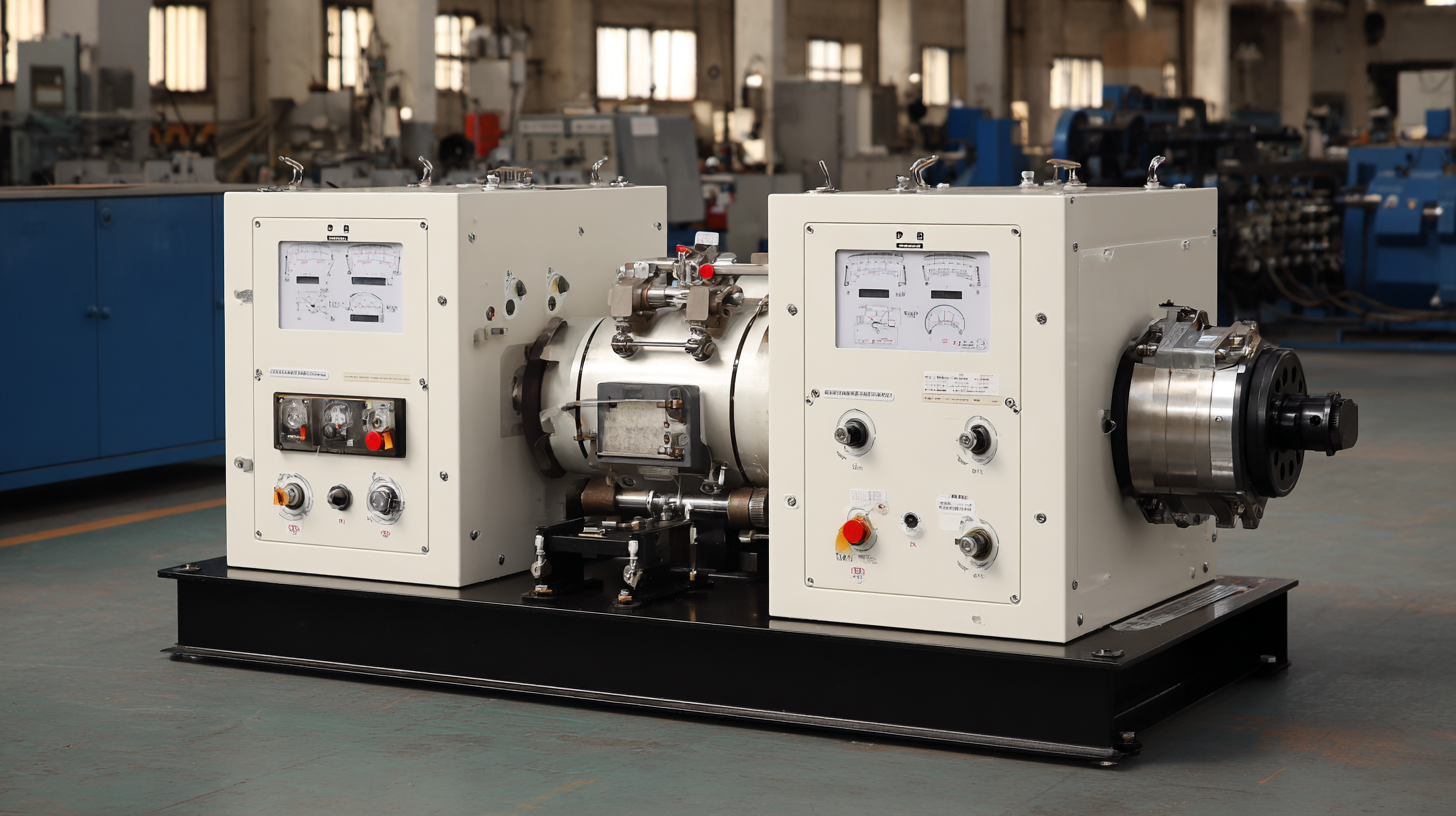 Also, a little tip—keep your generator tidy and free from dirt and debris. Dust and grime can pile up pretty quick, blocking airflow and making your unit overheat. Wipe down the exterior with a soft cloth or brush, and clear the area around it so nothing’s clogging vents. Oh, and it’s a good idea to test your generator under load now and then. This isn’t just about making sure it’s working; it’s also a handy way to catch potential issues early, before they turn into bigger problems. Follow these simple maintenance steps, and your low noise generator will not only last longer but also perform reliably whenever you need it. Trust me, a little TLC goes a long way!
Also, a little tip—keep your generator tidy and free from dirt and debris. Dust and grime can pile up pretty quick, blocking airflow and making your unit overheat. Wipe down the exterior with a soft cloth or brush, and clear the area around it so nothing’s clogging vents. Oh, and it’s a good idea to test your generator under load now and then. This isn’t just about making sure it’s working; it’s also a handy way to catch potential issues early, before they turn into bigger problems. Follow these simple maintenance steps, and your low noise generator will not only last longer but also perform reliably whenever you need it. Trust me, a little TLC goes a long way!
FAQS
: Noise level is crucial as it is measured in decibels (dB) and should comply with industry regulations to ensure a safe and comfortable working environment.
Diesel engines are a popular choice due to their efficiency and reliability, with renowned brands like Perkins, Cummins, and Mitsubishi being favored for quality.
High-quality alternators from reputable manufacturers like Stamford and Leroy Somer can significantly enhance the generator's performance and longevity, contributing to quieter operations.
Lower fuel consumption can lead to reduced operational costs and improved efficiency; some advanced models can save up to 20% in fuel costs annually.
It is essential to understand regional decibel limits and operational guidelines for noise emissions to ensure compliance and promote a quieter workplace.
Businesses should evaluate the long-term value by considering not just the initial cost, but also maintenance, durability, and performance features to avoid increased expenses and downtime.
A generator that is versatile and adaptable to various applications can provide additional value, making it a more suitable investment for diverse industrial needs.
Meeting noise regulations enhances overall operational efficiency by ensuring a quieter working environment, which is crucial in noise-sensitive areas.
Key specifications include noise levels, fuel efficiency, and power output; these factors help determine a generator's suitability for specific industrial applications.
Conclusion
Nowadays, picking the right low-noise generator is pretty important if you want to keep things running smoothly without too much disruption. It’s really worth understanding decibel levels because they tell you how noise reduction tech actually works. When you’re shopping around, look at factors like the engine type, fuel efficiency, and how much maintenance they need — these details help ensure your choice checks all the boxes for both your operations and compliance rules.
We’ve compared some of the top models out there and highlighted which ones stand out in terms of efficiency. Plus, it’s all about finding that sweet spot between cost and performance. The right generator isn’t just about meeting noise standards — it should also support your long-term goals. As a major player in the industry, JIANGSU LONGEN POWER TECHNOLOGY CO., LTD. offers a wide range of diesel generators tailored for different industrial needs, all built to deliver reliable performance and easy maintenance.
So, in a nutshell, choosing the right generator takes a bit of research, but it pays off in the long run, making sure everything runs smoothly and quietly.
Related Posts
-
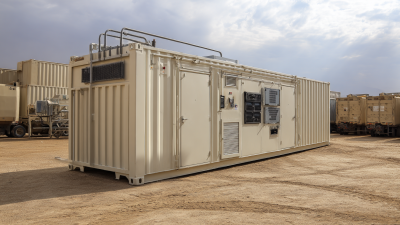
Unlocking the Advantages of Soundproof Diesel Generators for Your Business Needs
-

Navigating the Future of Best Generator Set 250 Kva in 2025 Global Market Trends
-
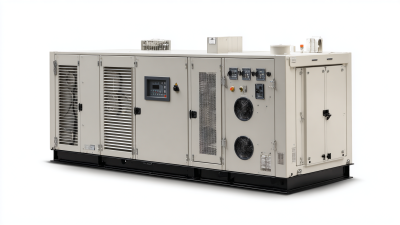
How to Choose the Right 16kVA Generator for Your Business Needs
-
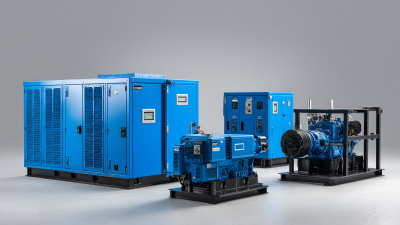
60kva Generator Showdown: Which Model Reigns Supreme in Performance and Efficiency?
-
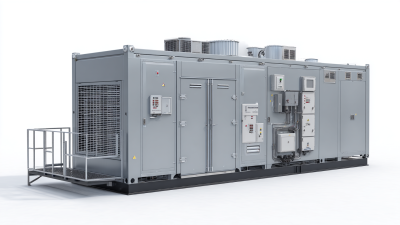
Solutions for Reliable Power with 250kw Generator in Global Markets
-
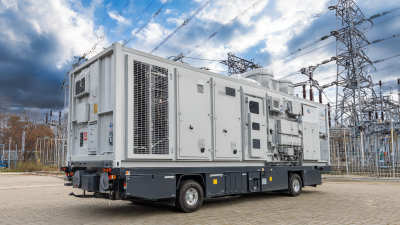
What is the Advantage of Choosing the Best 200kw Generator for Your Business
Blog Tags:

